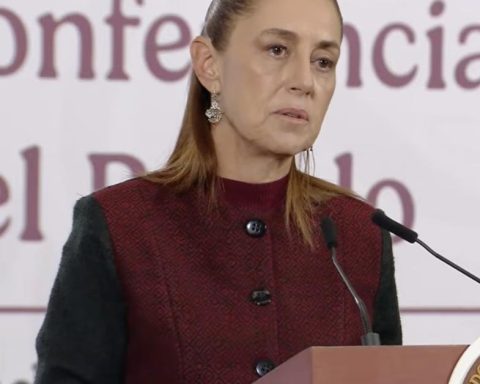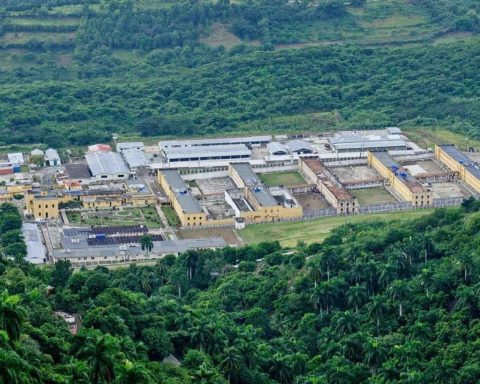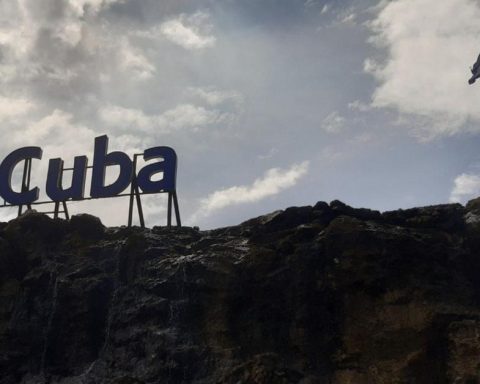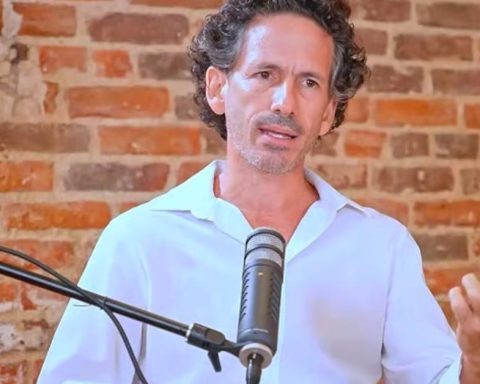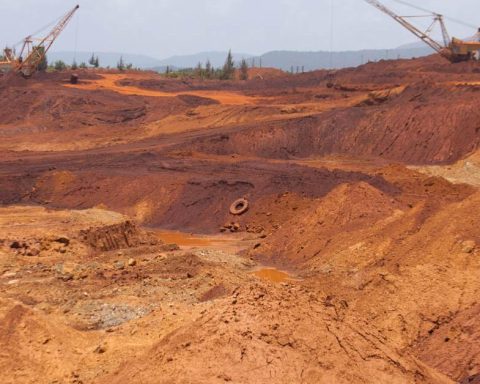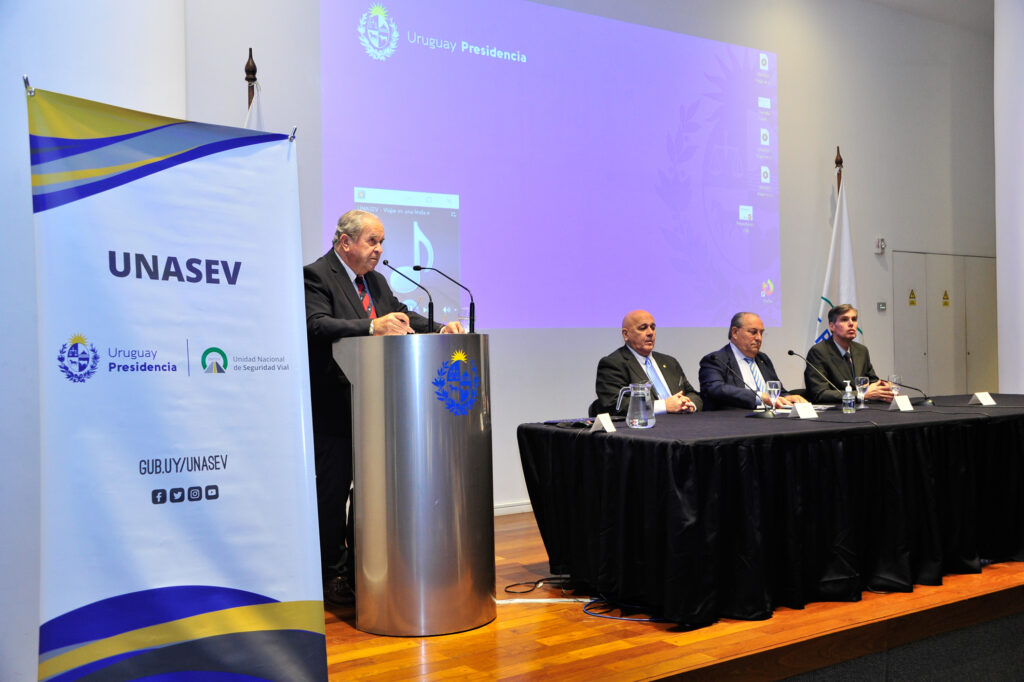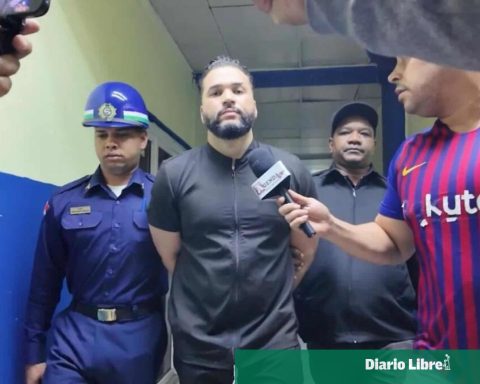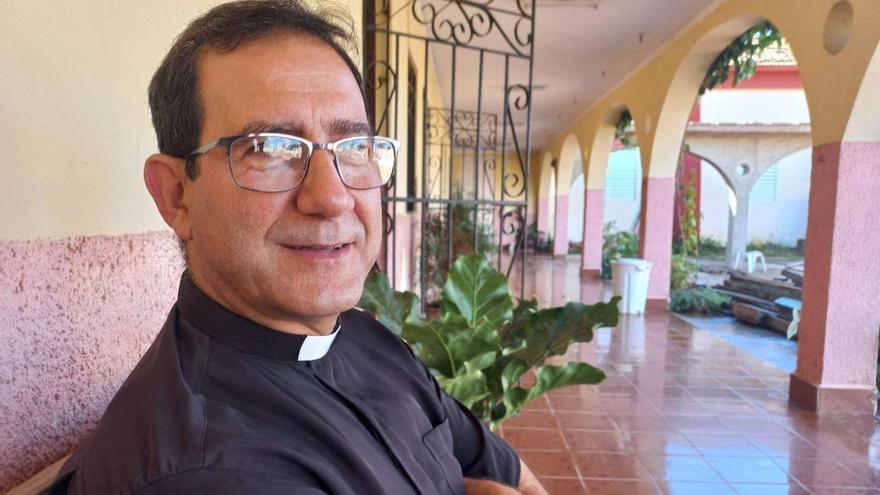
On a visit to Madrid, the catholic priest from Camagüey Alberto Reyes He speaks of Cuba as an island out of time. “There is no present or future there,” she summarizes, but rather the lethargy of continuity. The most obvious symptom: the re-election of Miguel Díaz-Canel, a definitive commitment to stagnation and outdated discourses, while the country’s place in the game of its allies –Russia, Venezuela, Nicaragua, Mexico– is plotted with a position each cloudy again.
Real life, however, goes the other way: repression, fear, shortages and many reasons to emigrate, lists Reyes, one of the most critical voices of the regime within the Catholic Church, in conversation with 14ymedio. “The repressive environment has gained ground, not only the acts. There are more and more people summoned by State Security and many warning acts. Any demonstration against the government is quickly controlled. People are very afraid,” he says.
The general state, explains the priest, is one of “learned defenselessness”, which means that, after the protests of July 11, 2021, Cubans have been “inoculated” with the notion that there is nothing else to do. One year after the protests, asked Through this newspaper, Reyes had offered his diagnosis: “We are a tired and worn-out people, whose lives are draining away in the fight for survival; we are a people who have learned to defend themselves as best they can and who go out to parade and applaud energetically while preparing his definitive emigration from the country”.
“We are a tired and worn-out people, whose lives are losing their lives in the fight for survival; we are a people who have learned to defend themselves however they can”
The situation has only changed for the worse, because now the predominant emotion, he says, is hopelessness and the longing to escape. “As now so many possibilities of emigrating have opened up – I am thinking of Nicaragua, of the sponsorship of the United States, of the possibility of becoming a Spanish citizen, in addition to the illegal departures by boat, which continue to exist – the focus is on foreigners.” The thought is almost unanimous: “Why am I going to mark myself if I have the possibility of leaving and getting out of this nightmare?”
Widespread fear is holding back the uprising many are waiting for. There are, Reyes exposes, private protests and comments, in addition to small demonstrations against the regime throughout the Island, but a massive protest like the one on 11J is very difficult to happen. “In addition, there is a lack of opposition leadership,” he observes, “Who will coordinate a demonstration? Who channels the energy of the people? Who raises their voices? I don’t rule out an uprising. In fact, it seems to me that very probable that it will happen, but there are many factors against it”.
Regarding exile, the priest celebrates that there are many people working seriously for the future of Cuba. However, he believes, “change has to come from within.” “Exile can support, help, but it’s not that simple. You do what you can, honestly,” he says.
The Island’s Catholic Church, on the other hand, has its own limits. The recent visit of Cardinal Beniamino Stella, who asked for “an amnesty or some form of clemency” for the island’s political prisoners, does not seem to have made a deep impression on the regime, which has continued to hand down harsh sentences for those who participated in 9/11. The Island’s Episcopal Conference continues, apparently, the same strategy of non-confrontation.
However, Reyes is blunt: despite its social impact and charitable works, “the Catholic Church is not a charity or a political party,” he says. He has an essentially religious mission, although he has not for a minute neglected accompanying the families of political prisoners and creating social initiatives to alleviate the misery of the people. The other part, he laments, praying and being close to people every day, “doesn’t usually make the news.”
“Exile can support, help, but it’s not that simple. You do what you can, honestly”
“Regarding the political and social sphere, we try, from our position, to accompany people in their despair. We also try to enlighten consciences and help people to think. If a priest writes an article or invites them to reflect, I I’m happy and I share it,” he says. Reyes, like other priests and nuns on the island such as José Castor or Nadieska Almeida, has denounced the abuses of the regime in recent years.
Since the country is not expected to open up to a new era, the most urgent problem is the stampede of young people. “I understand them,” she says. “They want to leave, live, take advantage of the only life they have. As soon as they can, they leave. Result?: We are the oldest country in the entire region.”
Meanwhile, the Díaz-Canel government, which ratified almost all the members of his cabinet in their posts, is getting closer every day to powers such as Russia – whose invasion of Ukraine it has welcomed – or local allies such as Mexico and Nicaragua. . People, Reyes says, don’t care much about the regime’s diplomacy. “There are more important things that they have to look at, like getting their daily bread,” he explains.
However, the movement of foreign ministers and politicians in Havana, congratulating Díaz-Canel as the architect of the continuity of the regime of Fidel and Raúl Castro, is still discouraging: “If they continue to prop up the system with economic aid, it will last a thousand years, and that brings us to the conclusion that everyone draws: the most sensible thing to do is to escape”.
________________________
Collaborate with our work:
The team of 14ymedio He is committed to doing serious journalism that reflects the reality of deep Cuba. Thank you for accompanying us on this long road. We invite you to continue supporting us, but this time becoming a member of our newspaper. Together we can continue transforming journalism in Cuba.
